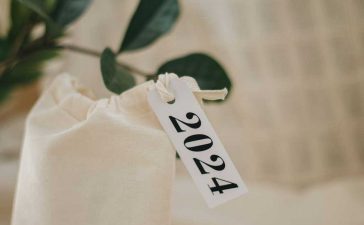Facebook’s parent company Meta and the Australian federal government are at loggerheads again after the tech giant announced it would not renew commercial deals with Australian news publishers.
The US company also revealed it planned to remove a news section from the social media site in Australia and the US next year when deals expire.
The announcement on Friday (local time) comes three years after Facebook banned all news links from being shared to its platform in Australia, in an action that also removed the pages of charities, health pages and emergency services.
Federal government ministers blasted Meta’s announcement as a “dereliction of its commitment” and said they would seek advice about taking action under the News Media Bargaining Code.
Meta announced its decision to walk away from agreements made with Australian news organisations in a statement on its website, following similar moves with European media organisations in September.
“We will not enter into new commercial deals for traditional news content in [Australia, France, Germany, the US and UK] and will not offer new Facebook products specifically for news publishers in future,” the statement read.
‘People don’t come to Facebook for news’
The company said it would close the Facebook News feature on its Australian and US platforms in April and would seek to focus its investments on content such as short-form video as “people don’t come to Facebook for news and political content”.
But Meta’s changes stop short of reinstating its short-lived news ban in Australia.
“People will still be able to view links to news articles on Facebook,” it said.
“News publishers will continue to have access to their Facebook accounts and pages, where they can post links to their stories and direct people to their websites in the same way any other individual or organisation can.”
Communications Minister Michelle Rowland and Assistant Treasurer Stephen Jones issued a joint statement about the Meta’s withdrawal, criticising the company’s change of direction.
“Meta’s decision to no longer pay for news content in a number of jurisdictions represents a dereliction of its commitment to the sustainability of Australian news media,” the statement said.
“Australian news publishers deserve fair compensation for the content they provide.”
The ministers said they would seek advice from the Treasury and the Australian Competition and Consumer Commission over possible action against Meta’s move, saying deals with tech giants using their content represented “a significant source of revenue for Australian news media businesses”.
“We will now work through all available options under the News Media Bargaining Code,” they said.
“The government will continue to engage with news publishers and platforms through this process.”
‘Arguments are as strong as ever’
Nine chief executive Mike Sneesby said Meta’s decision not to renew deals with Australian outlets failed to recognise the value of news that featured on its platform.
“We will continue to robustly advocate that these deals are in the national interest and the arguments that led to the code in the first place remain as strong as ever,” he said.
The News Media Bargaining Code was introduced in March 2021 after the ACCC identified an imbalance in bargaining power between news outlets and digital platforms over the use of their content, and followed protracted negotiations between the federal government, Facebook and Google.
Meta and Google voluntarily signed more than 30 deals estimated to be worth around $200 million a year with local media outlets after the law was passed, even though neither platform was officially “designated” under the law.
Any major digital platform that is “designated” under the code would be legally required to negotiate commercial deals with eligible Australian media outlets or face fines of up to 10 per cent of their local revenue.
Facebook Australia reported revenue of $224.61 million during 2022, though it also recorded $1.26 billion in local advertising sales and marked $1.03 billion of that sum as “reseller expenses”.












